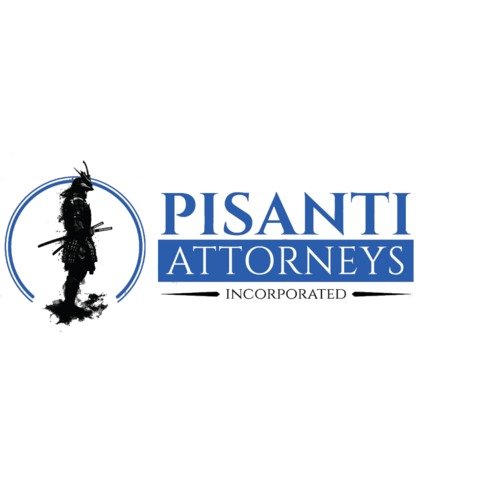Best Bankruptcy & Debt Lawyers in Germiston
Share your needs with us, get contacted by law firms.
Free. Takes 2 min.
List of the best lawyers in Germiston, South Africa
South Africa Bankruptcy & Debt Legal Articles
Browse our 1 legal article about Bankruptcy & Debt in South Africa written by expert lawyers.
- Debt Collectors in South Africa: Harassment and Verification
- You can demand proof of the debt, the collector’s authority, and a full breakdown before you pay. Do not acknowledge the debt or make part-payments until you verify it. Harassment is illegal. You may set contact times, request written-only communication, and lodge complaints with the Council for Debt Collectors or... Read more →
About Bankruptcy & Debt Law in Germiston, South Africa
Bankruptcy and debt law in Germiston, part of South Africa's Gauteng province, deals with the legal processes affecting the financial obligations and solvency of individuals and businesses. This field of law helps in resolving situations where debts have become unmanageable, ensuring both protection for debtors from excessively punitive measures and mechanisms for creditors to recover owed amounts. In South Africa, these laws are governed by the Insolvency Act, the National Credit Act, and other regulations aimed at balancing the interests of debtors and creditors. Understanding these complex legalities is crucial to managing bankruptcy and debt issues effectively.
Why You May Need a Lawyer
There are numerous scenarios in which seeking legal advice from a bankruptcy and debt lawyer might be beneficial:
- If you are overwhelmed by debt and considering filing for bankruptcy to protect your assets.
- When creditors are aggressively pursuing collection actions against you.
- To understand your rights and obligations under current debt agreements or contracts.
- To negotiate more favorable terms with creditors, such as settling debts for lower amounts or restructuring payment plans.
- If you are facing legal action from creditors and require representation in court.
- Guidance on how to legally discharge your debts or enter into arrangements like debt counseling or administration.
- To prevent sequestration by creditors seeking to declare you bankrupt involuntarily.
- If you own a business and are facing liquidation or solvency issues.
- For advice on protecting your personal assets if they are at risk due to business liabilities.
- To ensure compliance with all relevant national legislation when managing debts.
Local Laws Overview
Bankruptcy and debt management in Germiston fall under several key South African legal frameworks:
- Insolvency Act: This is the primary legislation governing bankruptcies in South Africa, outlining the processes for voluntary surrender of an estate and compulsory sequestration.
- National Credit Act (NCA): Focuses on regulating the credit industry, ensuring fair practices, preventing over-indebtedness, and providing debt review mechanisms.
- Companies Act: Pertains to business insolvency and the liquidation process, detailing how companies can be dissolved while protecting creditor rights.
- Court Procedures: Involves filing motions and attending hearings, primarily at local Magistrates' Courts or High Courts for complex cases.
- Debt Review Programs: Allows individuals to restructure their debt obligations under the supervision of a registered debt counselor.
Frequently Asked Questions
What is the difference between sequestration and bankruptcy?
Sequestration generally refers to the legal process of declaring an individual's bankruptcy, which involves a court order to manage the distribution of assets to satisfy outstanding debts. In South Africa, the terms are often used interchangeably.
How does the National Credit Act protect me?
The NCA protects consumers by ensuring transparent credit agreements, reasonable interest rates, and providing avenues for debt review if you are over-indebted.
Can I keep my home if I file for bankruptcy?
Whether you can keep your home depends on the equity in the property and if arrangements can be made to address outstanding mortgage debts through negotiations or restructuring.
What does 'debt review' mean, and how does it work?
Debt review is a process under the NCA where a debt counselor assesses your financial situation and helps to renegotiate payment plans with creditors, allowing you to pay off debts in a structured, manageable manner.
How long does bankruptcy last in South Africa?
Bankruptcy, or insolvency, traditionally lasts until the debt is fully cleared. However, rehabilitation may be sought after a minimum period of four years under certain conditions, potentially shortening the duration.
What happens to my credit rating if I go bankrupt?
Your credit rating will be significantly affected and your status as insolvent will be recorded by credit bureaus, impacting your ability to access further credit until rehabilitation or bankruptcy discharge.
Can creditors take legal action against me during debt review?
Once you enter into debt review, legal actions like repossessions or summonses are generally suspended, provided the debt review process is adhered to strictly.
Is it possible to file for bankruptcy multiple times?
It's possible, but re-filing for bankruptcy can be more complex and you'll need to meet specific criteria demonstrating your financial circumstances warrant such action again.
What is voluntary sequestration?
Voluntary sequestration is when an individual applies to be declared bankrupt by offering their estate for sequestration in court, with the intention to distribute assets equitably among creditors.
Do businesses in Germiston follow the same bankruptcy process as individuals?
Business bankruptcy involves liquidation under the Companies Act, which can differ as it focuses on selling off company assets to pay creditors, rather than personal asset management.
Additional Resources
If you're navigating bankruptcy and debt management, consider seeking assistance or consulting these organizations:
- National Debt Mediation Association (NDMA): Provides mediation services between debtors and creditors.
- The South African Reserve Bank: For guidelines on financial institutions' conduct and credit regulations.
- Legal Aid South Africa: Offers legal advice and representation for those unable to afford private legal assistance.
- Debt Counsellors: Licensed professionals who offer structured help to manage debt under the NCA.
- South African Revenue Service (SARS): Offers information on the tax implications of liquidation or bankruptcy.
Next Steps
If you need legal assistance with bankruptcy and debt issues in Germiston, it's advisable to begin by consulting with a qualified attorney or debt counselor experienced in this field. They can provide tailored advice based on your specific financial situation. It's also recommended to gather all relevant financial documents, such as income records, existing debts, and any associated legal correspondence. Additionally, ensure to comply with all legal requirements and deadlines to protect your rights and interests during any legal proceedings.
Lawzana helps you find the best lawyers and law firms in Germiston through a curated and pre-screened list of qualified legal professionals. Our platform offers rankings and detailed profiles of attorneys and law firms, allowing you to compare based on practice areas, including Bankruptcy & Debt, experience, and client feedback.
Each profile includes a description of the firm's areas of practice, client reviews, team members and partners, year of establishment, spoken languages, office locations, contact information, social media presence, and any published articles or resources. Most firms on our platform speak English and are experienced in both local and international legal matters.
Get a quote from top-rated law firms in Germiston, South Africa — quickly, securely, and without unnecessary hassle.
Disclaimer:
The information provided on this page is for general informational purposes only and does not constitute legal advice. While we strive to ensure the accuracy and relevance of the content, legal information may change over time, and interpretations of the law can vary. You should always consult with a qualified legal professional for advice specific to your situation.
We disclaim all liability for actions taken or not taken based on the content of this page. If you believe any information is incorrect or outdated, please contact us, and we will review and update it where appropriate.
Browse bankruptcy & debt law firms by service in Germiston, South Africa
Germiston, South Africa Attorneys in related practice areas.









